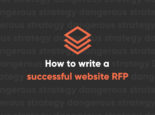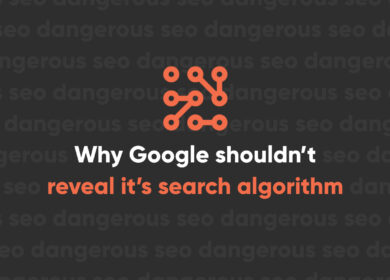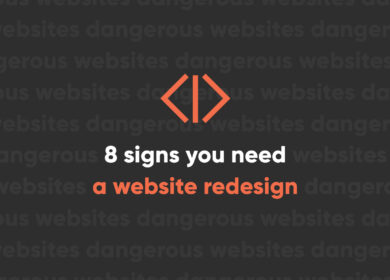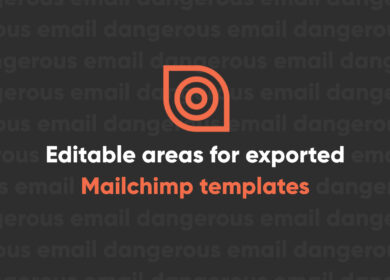
5 Things to Know Before Applying for a Digital Marketing or SEO Position
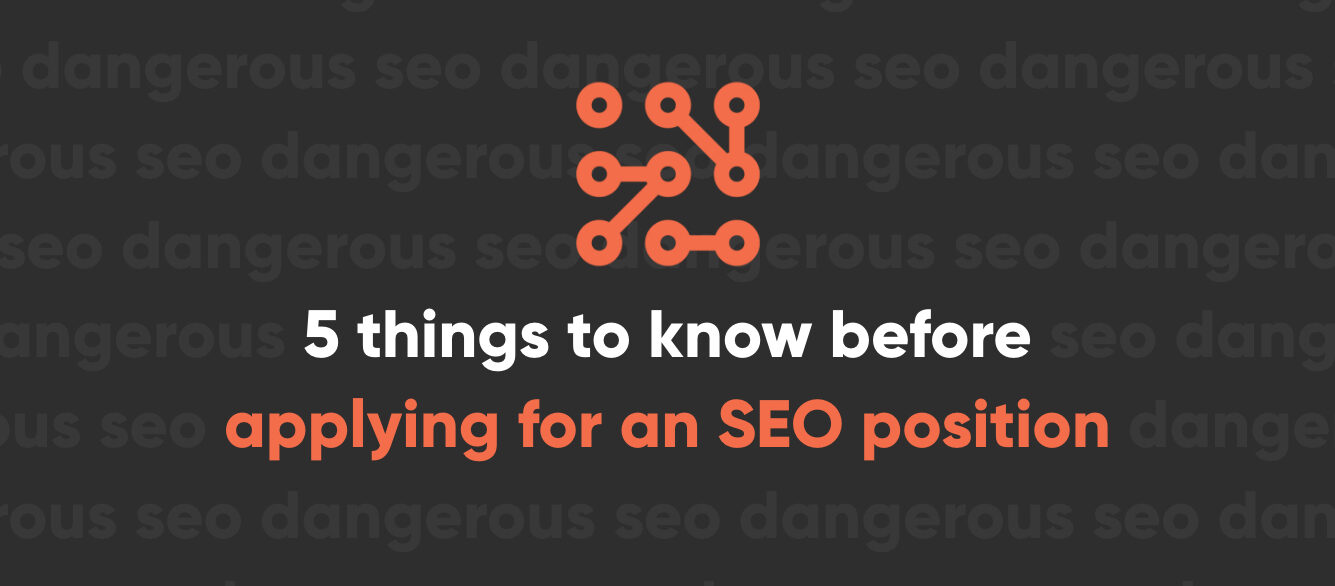
If you’re applying for a job in digital marketing or SEO, prepare to be up against a lot of competition. As with any other job, you have to be able to stand out from the hundreds of other job applicants. Digital marketing is a hot career path that’s rapidly growing, making it all the more competitive. Whether you’re applying for a job at a small agency or a big marketing behemoth, you better come to the table with your best.
Unfortunately, most candidates don’t. Most candidates submit resumes that could literally be for any job in the world. If you’re sending out the same resume and copy/paste cover letter to every job within a 100-mile radius that mentions the internet, then don’t expect to land too many interviews. If you are lucky enough to get an interview, make sure you’re well-polished on your digital marketing knowledge.
Yes, we’re all aware that digital marketing can mean a lot of things, and it’s quite likely that you aren’t knowledgeable in every area a particular agency needs. But that doesn’t mean you should take some vague approach that shows you’re a jack-of-no-trades and a master of none either. There are some very specific skills you need to have in order to land a good job in the world of online marketing. Just out of college and don’t have any real-world experience in marketing? That’s okay. There are even some areas where you can move ahead of your more seasoned rivals.
Here are 5 things you absolutely need to know before applying for a digital marketing position at an SEO agency.
Know What SEO Is
Notice that I didn’t say “know what SEO stands for” (search engine optimization, in case you were wondering). Obviously you should know that, but you have to know a little bit more. Notice also that I didn’t say you need to be really good at SEO. Believe it or not, simply knowing what SEO is can be enough to put you ahead of a lot of other candidates.
So what exactly do you need to know here? Having knowledge of the latest algorithm updates is fine. Knowing that links and content are the top ranking factors helps a little. Understanding how to optimize a title tag or a meta description—even if you’ve never done it before—is great too. But most importantly, you need to know that SEO and PPC/SEM/AdWords/digital advertising/whatever you want to call paid search are NOT THE SAME THING!
If it seems like I’m yelling here, I am. Most job applicants think SEO and paid search are the same, or at least they aren’t quick enough on their feet to explain the difference. When they talk about their “extensive knowledge” of SEO, a lot of them mention the AdWords platform and “buying keywords.” Although there are some people out there who believe running ads on Google helps you rank better in organic (it doesn’t), these are two distinctly different areas (albeit with a fair amount of overlap). If you don’t understand the difference between SEO and paid search, then you don’t know SEO.
TL;DR - Even if you’ve never ranked a page #1 for an ultra-competitive keyword, you can still show you’re qualified by having a little knowledge about SEO. Read at least a little of this handy SEO guide before applying for any digital marketing job.
Know How to Apply Your Past Experience to Marketing
This whole digital marketing thing is still pretty new. The majority of applicants haven’t really done it before, and most of the ones that have are very siloed. A lot of people applying for a digital marketing job are either changing careers or starting fresh out of college. If you’ve done some marketing internships or held a digital marketing gig either in-house or for a digital agency, that’s fantastic. Be sure you can discuss the specifics of your experience and how you (not just “we”) influenced marketing campaigns in some way. You have to be ready to explain your contributions and your role. Too many candidates say “we” about every single thing they did, leaving the employer wondering if the candidate actually ever did anything on their own.
If you haven’t done any marketing before but have worked in other fields, try explaining specifically how your experience translates to the specific skills in the job description. Don’t cite your janitorial experience and say, “I believe my past experience makes me a good fit for your company” and expect the person reading your application to figure out how. Instead, tie your skills directly to the position at hand. For example, if you were a bartender, then discuss how your communication skills and problem-solving abilities will translate to managing client accounts in a digital marketing setting. And be sure to have specific examples. Don’t just speak in generalities and cliches.
So what if you haven’t worked at all before? Then explain how the coursework you took or the freelance gig you did or the online research you’ve done will set you up for success in a digital marketing role. Don’t just say you’re a fast learner who’s excited about marketing. Give specific examples of times you learned things quickly, and show your excitement about marketing by gushing about the research you’ve done and the various activities you’ve attempted in some capacity, even if it’s just doing Google searches and taking notes on your general observations of the SERPs (yes, you should also know what SERP means).
You don’t necessarily need to have much direct experience, but you need to be able to show how your experience and your knowledge will make you a great fit for the particular position.
Know Analytics
If you’ve never logged into Google Analytics or a similar program, then don’t apply for a digital marketing job yet. Every marketer needs to have knowledge about analytics. Since almost every agency in the world uses Google Analytics, you need to be familiar with it. If you’ve never used GA before, then do the following before applying for a marketing job: 1. Create a simple blog or website. 2. Create a Google Analytics account. 3. Add the tracking code to your simple website. 4. Get into the GA platform and immerse yourself in data. 5. Take the GA certification test. Pro tip: having your Google Analytics certification looks great on your resume.
You should be prepared not only to share your familiarity with analytics, but also to discuss a time when you used data to make a decision. This doesn’t have to be ridiculously complex. It could be as simple as using bounce rates to determine the best landing pages for specific campaigns. Or even looking at Facebook Insights to determine the best time to post your next video. If you’ve never used data to make a decision, then be honest about it and give an example of how you could use data to make a decision.
Know the Role of Social Media
At least half of applicants for a digital marketing job are self-proclaimed social media experts. Oftentimes, their social media experience starts with the lame joke, “I use Facebook and Instagram a lot.” As cool as that is, no employer has ever been impressed by someone’s personal social media use. It’s assumed, just like it’s assumed that you can use email and Microsoft Word. Bragging about how you use social media for personal use is a great way to show you aren’t qualified for a job.
On the other hand, social media is very important to marketing. Think beyond personal use. Did you create a Facebook page in support of your blog and drive hundreds of people to one of your posts? Now we’re talking. Maybe you know the difference between a boosted post and a Facebook ad. Maybe you helped someone create a content calendar. Maybe you’re familiar with HootSuite and scheduling posts to various social media accounts. The important thing here is that you are familiar with something other than posting your latest thoughts or what you had for breakfast. Just make sure you know something about social media from a business angle.
Know What You Don’t Know
The people interviewing you for a digital marketing job have a lot of other things to do besides interview you. The last thing they want to do is hear you spout out some BS about something you clearly don’t know. Digital marketing consists of many things, and you probably aren’t an expert on everything. Know your limitations. Don’t go on and on about your AdWords experience if you’ve never run a good campaign. Don’t babble on about title tags if you don’t really know how to optimize one.
At the same time, never flat-out say, “I don’t know.” Always be able to spin a question in your favor. Just make sure you do it tactfully while actually answering the question. Showing that you understand your current limitations works in your favor as long as you clearly show your willingness to learn. And not knowing something is sometimes a good thing because it means your new boss doesn’t have to retrain you to do things the way their company does them.
Some Final Tips
No matter what your experience level is, you need to be smart about how you apply for a digital marketing position. The pool of candidates is huge. The pool of qualified candidates is much, much smaller. By knowing these 5 things and presenting them well, you stand a good chance of getting an interview. Oh, and be sure to always do these things no matter what type of job you are applying for:
- Include a cover letter that directly discusses your skills related to this position
- Include an up-to-date resume that’s saved as a PDF (don’t send anything as a Word doc)
- Follow all application guidelines perfectly
Finally, good luck with your job search. Digital marketing is an exciting and evolving field, and now is a great time to be in it.

Nate Tower
Nate Tower is the President of Perrill and has over 12 years of marketing and sales experience. During his career in digital marketing, Nate has demonstrated exceptional skills in strategic planning, creative ideation and execution. Nate's academic background includes a B.A. with a double major in English Language and Literature, Secondary Education, and a minor in Creative Writing from Washington University. He further expanded his expertise by completing the MBA Essentials program at Carlson Executive Education, University of Minnesota.
Nate holds multiple certifications from HubSpot and Google including Sales Hub Enterprise Implementation, Google Analytics for Power Users and Google Analytics 4. His unique blend of creative and analytical skills positions him as a leader in both the marketing and creative worlds. This, coupled with his passion for learning and educating, lends him the ability to make the complex accessible and the perplexing clear.
